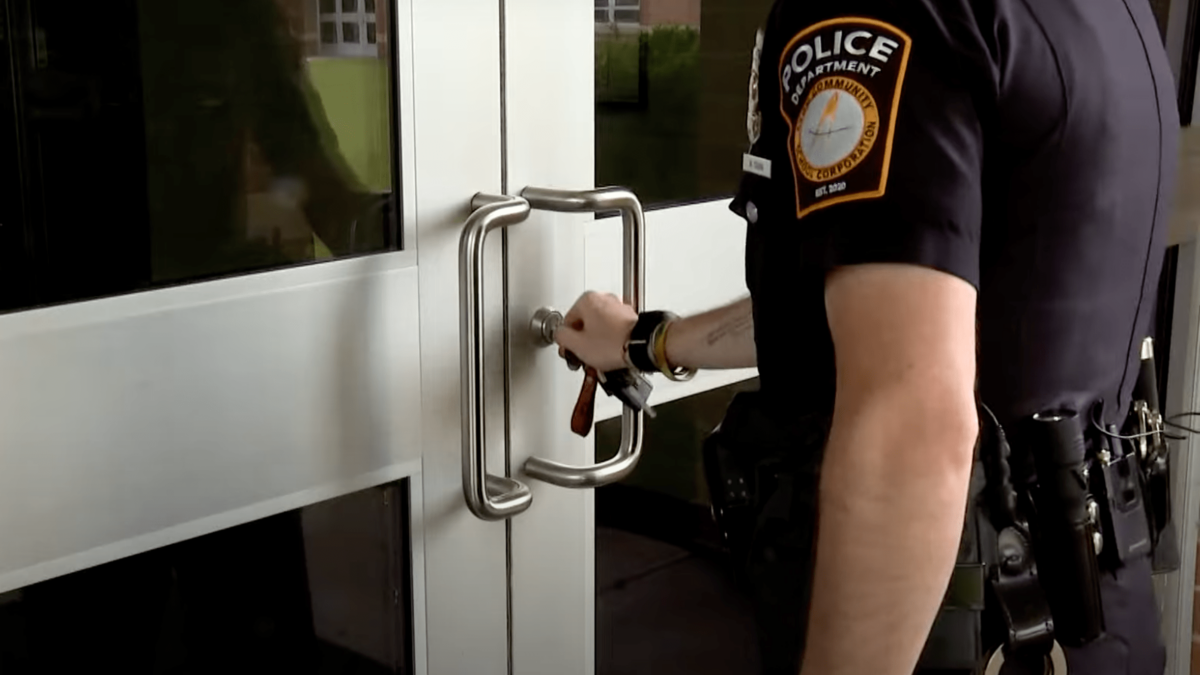
Mere days after a shooter killed three 9-year-old students and three staff members at a private Christian school in Nashville, Republican Sens. Marsha Blackburn and Bill Hagerty of Tennessee introduced a new bill that would funnel $900 million worth of taxpayer dollars to both public and private schools to hire armed security and “harden” classrooms with enhanced physical defenses.
The Securing Aid for Every (SAFE) School Act, if passed, will give states financial leverage to establish training and licensing programs for veterans and former law enforcement officers to protect private and public schoolchildren from threats like shooters. It will also offer grants to schools to install surveillance cameras, metal detectors, alarm systems, and locks in hallways and classrooms.
Who is in charge of your children? That has been a perennial question that has grown in importance over the last few years. When I was a child, it was understood that, with rare exceptions, parents were in charge of a child’s upbringing. This included medical, religious, and educational decisions. However, over the last few decades, the role of the parent in these decisions has been replaced by experts. What happens when the goal of the experts differs from those of the parents? Who decides the future of the rising generations? It was understood that the state acted in loco parentis, in place of the parents, only for the safety of the child. A recent case in U.S. District Court shows that be it health departments, child services, schools, or even the courts. Government not only believes they know better than the parents, they are more than willing to act in loco parentis tyrannis.
https://constitutionstudy.com/?p=8897
With the release of ChatGPT and other artificial intelligence (AI) applications, there has been a lot of speculation and downright assertions about our future. With over 30 years of experience in Information Technology (IT), not more than a passing understanding of AIs, I've come to the conclusion that much of what I've heard is more science fiction than fact. A recent court case decided in the D.C. District Court revolved around one very important question. Do AIs have rights?
In this third installment of the three-part series on the branches of government, we look at the role of the third and weakest branch. At least that is what our Founding Fathers thought of it. What is the role of the federal judiciary? What are the extent of their powers, how do they related to the other two branches of government, and why is a proper understanding of the role of the judiciary critical if the United States is to remain a constitutional republic?
https://constitutionstudy.com/?p=8575
How far can a state go to regulate the right to bear arms? Can a state override a person’s property rights? Can Hawaii proactively prohibit lawful gun owners from carrying on private property without owners prior consent? That is the question in the Supreme Court case Wolford v. Lopez.
https://constitutionstudy.com/2026/02/23/511-private-property-vs-gun-control/

One of the advantages of the United States is the independence of our states. Remember, the states created the federal government not the other way around. The problem is, so much attention is focused on Washington, D.C., we sometimes forget to look at what are states are doing. - Live 4PM ET with Host Paul Engel @CyberEngel @OutLoudNews
LIVE https://buff.ly/3A9cbyK
iHEART RADIO http://bit.ly/2mBrCxE

I’ve always found the saying, “There’s more than one way to skin a cat.” both insightful and a bit disturbing. Yes, it reminds us there there is often more than one way to achieve our goals. But where are these people skinning cats?
I guess that adage is true. Because recent events show there is more than one way to infringe on people’s rights. - Live 4PM ET with Host Paul Engel @CyberEngel @OutLoudNews
LIVE https://buff.ly/3A9cbyK
iHEART RADIO http://bit.ly/2mBrCxE














